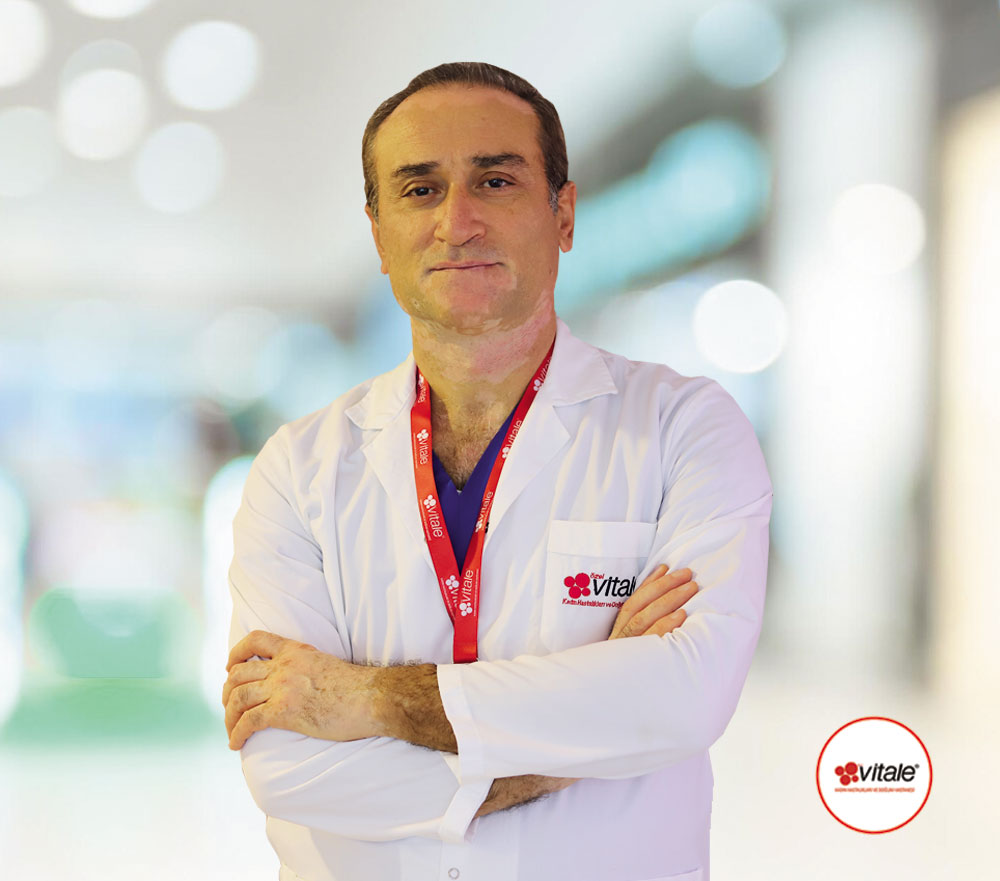Prostate Cancer Treatment in Turkey
Prostate Cancer Treatment at Vitale Hospital


What is Prostate Cancer?
Prostate cancer is a type of cancer that originates in the prostate gland—a small, walnut-shaped organ located just below the bladder in men, responsible for producing seminal fluid. This form of cancer is one of the most common among men, especially as they age, and it can range from slow-growing tumors that remain confined to the prostate to more aggressive forms that spread to other parts of the body. Early detection of prostate cancer is key, as treatment success rates are significantly higher when the cancer is found before it has spread.
Table of Contents
ToggleIn Turkey, advanced prostate cancer treatments are available at competitive prices, making it a popular choice for international patients. With access to modern facilities, skilled oncologists, and cutting-edge technology, Turkey offers a comprehensive approach to prostate cancer treatment tailored to each patient’s needs.
Symptoms of Prostate Cancer
Prostate cancer symptoms often vary depending on the stage of the disease, and early-stage prostate cancer may not produce noticeable signs. Here are common symptoms associated with prostate cancer:
- Men with prostate cancer may experience difficulty starting or stopping urination, a weak urine stream, or frequent urination, especially at night.
- The presence of blood in the urine or semen can be a sign of prostate cancer, although it can also result from other conditions.
- Prostate cancer can sometimes affect sexual function, leading to issues such as erectile dysfunction.
- As prostate cancer progresses, it may spread to nearby bones, causing pain in these areas.
Because early-stage prostate cancer may be asymptomatic, regular screening is important for men over 50 or those at higher risk, allowing for timely diagnosis and treatment.
Causes and Risk Factors for Prostate Cancer
The exact cause of prostate cancer is not fully understood, but several risk factors increase a man’s likelihood of developing this condition. These include:
- Prostate cancer is most common in men over 50, and the risk increases with age.
- Men with a family history of prostate cancer or certain genetic mutations (such as BRCA1 or BRCA2) are at a higher risk.
- Prostate cancer occurs more frequently in men of African descent and tends to be more aggressive in these groups.
- Diets high in red meat and low in vegetables, obesity, and smoking have been linked to an increased risk of prostate cancer.
Understanding these risk factors can help with preventive measures and encourage early screening, particularly for those in high-risk groups.
How Is Prostate Cancer Diagnosed?
Prostate cancer is diagnosed through a combination of tests designed to detect abnormalities and confirm the presence of cancer cells. Here’s an overview of the main diagnostic steps:
The prostate-specific antigen (PSA) test measures PSA levels in the blood, with elevated levels potentially indicating prostate cancer. However, high PSA can also result from benign conditions like prostatitis or an enlarged prostate, so further tests are needed to confirm a diagnosis.
During a DRE, the doctor manually checks the prostate through the rectal wall to feel for any lumps, hard areas, or irregularities in size and shape.
If PSA or DRE results are abnormal, imaging tests such as MRI or ultrasound may be used to get detailed images of the prostate. These tests help in identifying suspicious areas and assessing the extent of any abnormal growth.
A prostate biopsy is the definitive test for diagnosing prostate cancer. Using imaging guidance, a small tissue sample is taken from the prostate and analyzed under a microscope to check for cancer cells. A Gleason score is assigned to determine the aggressiveness of the cancer.
How is Prostate Cancer Treated in Turkey?
Prostate cancer treatment in Turkey offers a wide range of options, from active surveillance for low-risk cases to surgery, radiation, and advanced therapies for more aggressive cancer. The choice of treatment depends on the stage and grade of cancer, the patient’s health, and personal preferences. Here are the main treatment options available:
Pre- and Post-Treatment Care for Prostate Cancer in Turkey
Before Treatment:
- Patients meet with a team of specialists, including oncologists and urologists, to discuss treatment options and decide on the best approach.
- A range of tests, including blood tests, MRI scans, biopsies, and PET scans, may be conducted to confirm the stage and grade of cancer.
- Depending on the treatment, patients may be advised to make dietary adjustments, quit smoking, or prepare for lifestyle changes that support healing and recovery.
After Treatment:
- Regular follow-up appointments are essential to monitor recovery and check for any signs of recurrence. Tests such as PSA (prostate-specific antigen) blood tests are commonly used for monitoring.
- Some treatments, like surgery and radiation, may impact urinary or sexual function. Physical therapy or medication can aid recovery and help patients manage side effects.
- A healthy diet, regular exercise, and stress management are recommended to support overall well-being and reduce the risk of cancer recurrence.
By following pre- and post-treatment care guidelines, patients can achieve the best possible outcomes and maintain quality of life.
Doctors
Op. Dr. Kemal BULUT
Urology Specialist

Cost of Prostate Cancer Treatment in Turkey
The cost of prostate cancer treatment in Turkey depends on factors like the type of treatment and the specialist’s expertise. Turkey is known for offering advanced healthcare at competitive prices, making it an attractive option for international patients.
- Initial consultations and diagnostic tests
- Surgical or radiation treatments
- Follow-up care and monitoring
Vitale Hospital offers comprehensive packages that cover these components, making Turkey a cost-effective choice for prostate cancer treatment.
FAQ
Yes, Turkey offers high-quality prostate cancer treatments at competitive prices, with many clinics providing comprehensive packages. This makes it an appealing option for patients from around the world.
Recovery varies depending on the type of surgery, but most patients can return to light activities within a few weeks. Full recovery, especially for radical prostatectomy, may take several months.
Yes, Turkey is known for its advanced medical facilities, skilled specialists, and high success rates in cancer treatment. Many international patients choose Turkey for its reputation in effective and affordable prostate cancer care.
Prostate cancer is diagnosed through a combination of PSA blood tests, digital rectal exams (DRE), biopsies, and imaging tests. These diagnostic tools help determine the presence, stage, and grade of cancer for the most accurate treatment plan.


